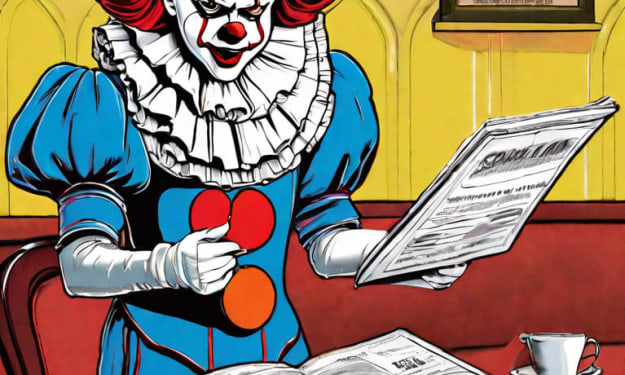
In the field
Jungle, fortune, light
The blade of the shovel struck neither stone nor dirt, but a peculiar metallic sound echoed. The sandy-blond-headed boy placed his shovel aside and bent down. He could feel the wet dirt against his skin and reached into the hole he had diligently dug. His hands found the thick piece of double-wrapped cloth, and he kept digging with his hands in the soft, moist dirt. Wet clay and dirt clamored under his nails, his hands browned with the soil sticking lightly to them. Dillon dug, clearing the cloth, and gently removed the dingy sack from its layer. He tried not to tear the sack where some roots had gently begun to attach, feeling the metal squirming around in the thick sack.
A little over a year ago, Samuel had slid the same shovel into this spot and placed the sack of hope and fear into the ground. He had marked the spot between the fence and the planting rows with large round stones from the creek. The spot was clearly marked, and his instructions even clearer.
"Dillon, if something happens to me over there, you fetch out this sack, and what's in it is yours. If not, I'll see you soon, and we'll dig it up together and have a good time in town," Samuel had said.
Dillon stood still in the hallway as he watched his mother curl up and begin crying when notified of Samuel's death. It had been over three months ago, yet something always kept Dillon from trudging out to the field and digging up his brother's memory. Whenever he headed in this direction, it seemed like his mother would call him home for supper, chores, or just a simple hug.
Other than the day that the news came, Dillon's mother appeared crushed no worse than she was the day he hitched up his gear and stepped onto the bus. Her heart poured onto the gritty, grim pavement along with a season's worth of rain that was in her tears.
Dillon only remembered Samuel's smiling face in his mind. That one smile he carried every spring as he rode the old red Ford tractor through the field, breaking up the ground for a new season of planting. Now the cloth sack lay before him.
"I had to dig it up - they're going to break up the field tomorrow for the planting. It would have been churned into the soil and lost forever," he whispered to himself, with tears forming in the corner of his eyes.
Dillon pulled at the cord laced in and around the sack. As he pulled it open, he thought he heard his mother's voice calling. He looked up, then stared back at the sack, blocking out all sounds except those in his heart, which cried in pain to see Samuel - what he had left anyway. He launched his hand into the sack and opened it wider. He could see a hundred silver dollars and Samuel's pocketknife with the worn black handle. The rusty knife resisted the pull of his fingers as he tried to retrieve the blade from its rusty resting place.
"Work - work- open," Dillon angrily huffed low.
"Why would he leave a great pocketknife to rust in the ground? It's worthless!" Dillon stammered with anger. He pitched the knife into the soil and poured the coins onto the stones, listening to the clanging as they fell into the soil. He plopped onto the ground beside the pile of coins and began counting them, recounting, never being able to remember the exact number. Fighting back the tears, he began counting for the uncountable time.
Jane's voice, Dillon's mother, pierced through the memories and tears, announcing the arrival of supper and sunset. Dillon answered and filled the coins back into the sack and pushed the knife into his blue-jean pocket.
Supper proceeded in the usual quick manner, a heated TV dinner for Dillon and his mother. Before and after the meal, she kissed him on the top of his head and said her own special prayer of thanks for their daily bread. Dillon slid back to his room as Jane slipped down into the worn black chair where her husband and Sam had reclined in the days before life took them away. She watched the nightly news about other mothers' sons who had died that day - someone to share in her pain, say a prayer together, and yet drink alone.
Dillon stomped around the bed, examining the cloth sack perched on the headboard. He wanted to open it, but he was fearful of what might come out - the pouring tears and feelings of regret from his heart. He walked to the dresser and pulled out the dingy envelope, which contained a single, simple folded sheet of paper, also dingy from handling. Dillon began reading silently to himself.
"Dear Dillon, I hope you're helping Momma take care of the farm. It will be planting time soon. Over here, it rains more in a day than it seemed to rain in seven seasons back home. We tramp through jungle and fields of rice day and night when we're not at base camp. I miss the seasons, and I miss you and Mama. I'll write soon. We're headed back out to go tromping around. Love, your brother Samuel."
Dillon gently folded the letter back and placed it in the envelope, returning the treasure to its place. "She's probably already curled up crying," Dillon remarked, thinking of his mother's nightly schedule: the news, several drinks, and the flow of tears.
"Dillon, come here, please?" his mother called, her voice free of tears.
Dillon slowly paced into the living room. His mother stared at him for a moment, then hugged him. "The war is over," she said. "All the American soldiers are leaving Vietnam." The tears came flowing hard. "Samuel's not coming home," Jane whispered, barely audible.
Dillon squeezed his mother tight, trying not to squeeze his own tears out. He held onto his mother and held his tears back. His mother kissed him on the head and said, "Let's get to bed." She wiped her tears with her palms, kissed Dillon on the head and turned off Samuel’s study light as they both marched off to their rooms.
Dillon watched his mother go to her room and shut the door. He quickly closed his own door and grabbed the sack, pouring the contents out onto the bed. The coins jingled slightly, and red clay crumbs fell onto the sky-blue bed covers. The innards of the sack were gently spread over the bedspread. His heart stopped for a moment. "Where was the knife?" His mind stalled, and frantically, he touched his jeans' pockets. He breathed. It was in the front pocket. He counted the coins again, reciting the numbers aloud: 112 silver dollars, just thirteen more coins than days since Samuel had been lowered into the red clay. Dillon imagined grabbing the shovel and digging Samuel up from the earth, with life somehow rekindled in his broken body. Dillon slung himself onto the bed, landing on the coins, crumbs of clay, and the sky-blue bedspread. Tears snuck past the hard tough man that he yearned to be. With tears streaming down his face, Dillon closed his eyes and slipped off to sleep.
The sun began to crest over the horizon when Dillon awoke to the sound of the tractor. Dillon dashed from the bed, ready to call out to Samuel, but as he approached his window, he remembered Samuel was gone. The Burton boys had rented the field for planting.
The sound of his mother's voice cut through the morning stillness, over the distant hum of the tractor outside. "Dillion, breakfast is ready, and I'm gone to work. Why don't you lend a hand to the Burtons and help move the stones out of the field? Jim or John might even pay you a quarter or two for your trouble."
Dillion nodded, barely turning his gaze from the window where the tractor churned up the fresh earth. He dressed slowly, preoccupied with the weight of the sack filled with his brother's hard-earned coins and the knife tucked in his pocket. With deliberate care, he emptied the coins into his father's steel box, sliding the sack inside before closing the lid tight.
Making his way outside, Dillion approached the fence and dug into the earth with his bare hands, making a hole three times deeper than his brother Samuel's final resting place. He retrieved the shovel and swiftly filled the hole with his father's box, burying it deep beneath the soil. Piling stones atop the spot, he waved to Jim and John, who were taking a break from their work before dashing to the shed.
There, he cleaned the rusty knife with oil, preparing to carry his brother's memories and the black-handled knife with him always. The regrets of not holding Samuel tighter or writing him more often would remain buried with the money that had taken him seasons of hard toiling to earn.
Years passed, and on May 29, 1979, Dillion returned to the field with a shovel in hand. He dug slowly, methodically, until he uncovered the box and the fortune it held. Sitting down on the cool earth, memories flooded back as he shook the red clay from the container's surface and opened it. Counting out the coins with his now-grown hands, he tallied up to $113, and began wiping the soil from each one, placing them in a shipping box along with a copy of his brother's final letter.
Dillion inscribed the address: Vietnam Veterans Memorial Fund Arlington, Va. 22201. The simple act of sending his brother's hard-earned coins to the Memorial Fund brought closure to years of grief and guilt. As he stood in the field, Dillion recited a poem he had written in memory of his brother, whose death in battle had taken him away from the fields they had both loved:
"In the field of summer and spring, I played, while my brother plowed away. In the field of winter, I sat and wondered where my brother would lay. In the field of summer and spring, I wept with tears raining onto the fresh plowed ground. My brother died in the field of battle, no springs, summers, falls, or winters for him to tend the fields of the farm. Only the memories of our hearts. The battlefield called him away, and the fields of grain saw him no more. The field he lay down in carried not the smell of fresh-turned earth or cut corn stalks, but the smell of blood and dying."
About the Creator
Joseph McCain
I love my wife. I love my children. And I had a 30 year love affair with newspapers.






Comments
There are no comments for this story
Be the first to respond and start the conversation.